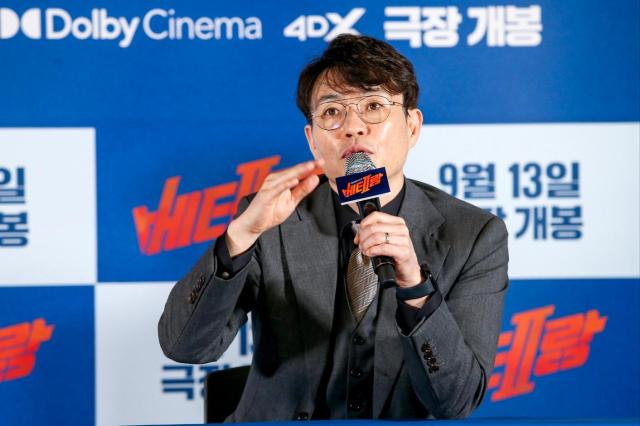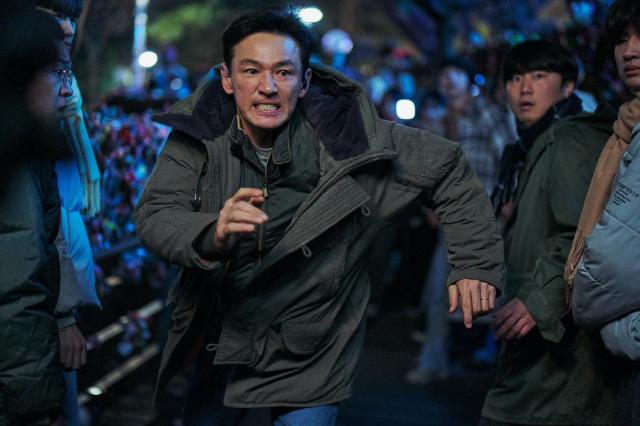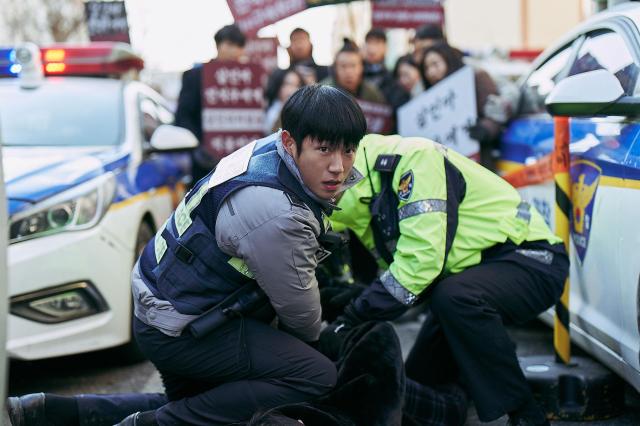
The action-packed crime film, a sequel to Ryoo's 2015 hit "Veteran," is expected to continue its dominant solo run since there are no big rivals including Hollywood blockbusters. Its cumulative attendance is now approaching six million viewers, just two weeks after it hit local theaters on Sept. 13, ahead of Chuseok, one of Korea's biggest holidays.
"It's been nine years since 'Veteran' was first released," Ryoo said at a press event in Seoul just a couple of days before its release, which was also attended by lead actors Hwang Jung-min and Jung Hae-in. "The predecessor's huge success made me contemplate more deeply what stories to tell in the sequel," he added.
"I, the Executioner" revolves around a veteran detective chasing a serial killer, but the story appears somewhat baffling among some viewers as the film explores a form of twisted justice where the criminal ironically punish wrongdoers more effectively than legal measures can.

Ryoo recalled that his idea stemmed from questioning things he once firmly believed in and those that seemed completely natural. "I often felt anger toward awful news stories, pointing fingers at perpetrators. But one day, I realized that I knew very little about them and that my perception might be superficial," he said.
He further elaborated that he did not want to merely portray the binary opposition of the good versus evil in his latest film. "Instead of jumping to conclusions, I wanted to ask questions like, 'When we react to some bad news, is our common ire always justified? Isn't there a chance that it could stem from our ignorance?'"

Hwang explained, "The detective could have let the criminal die, but he chooses to save him to ensure he faces punishment through proper legal procedures, not through other means."
Jung Hae-in, who played the role of the criminal, said, "Notions of justice seem to be becoming more diverse and complex in a rapidly shifting, multi-faceted, modern society. I believe the film is already successful if it sparks discussions on this."
Copyright ⓒ Aju Press All rights reserved.




